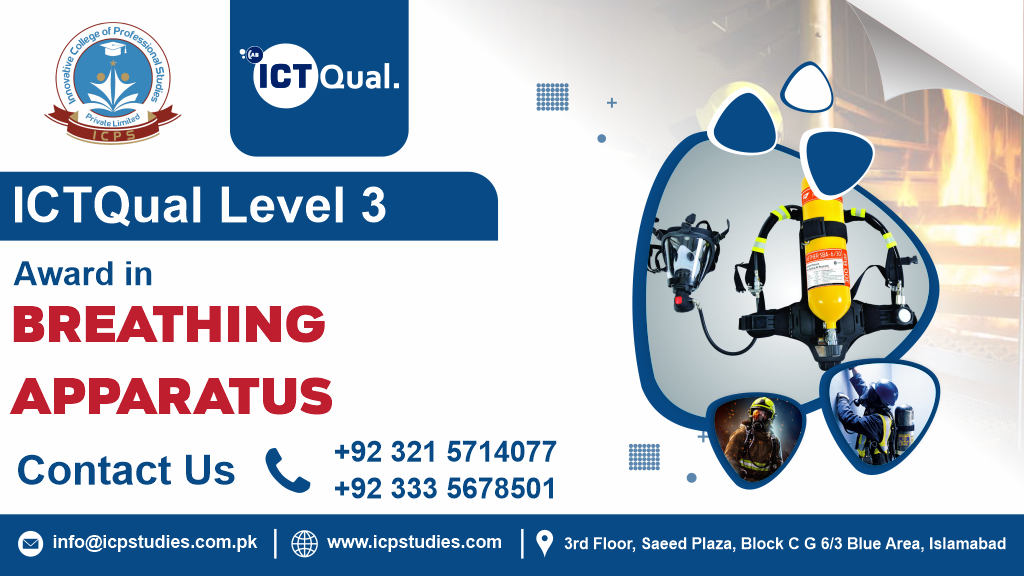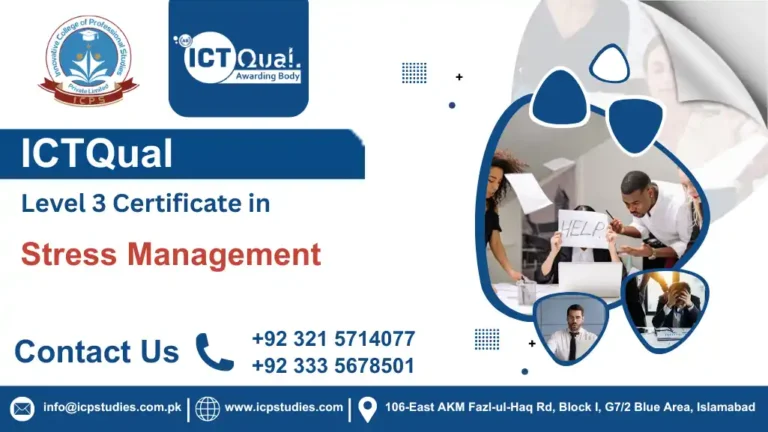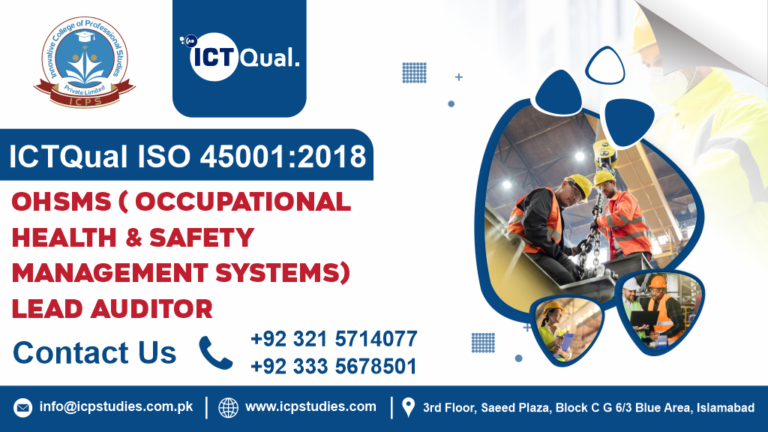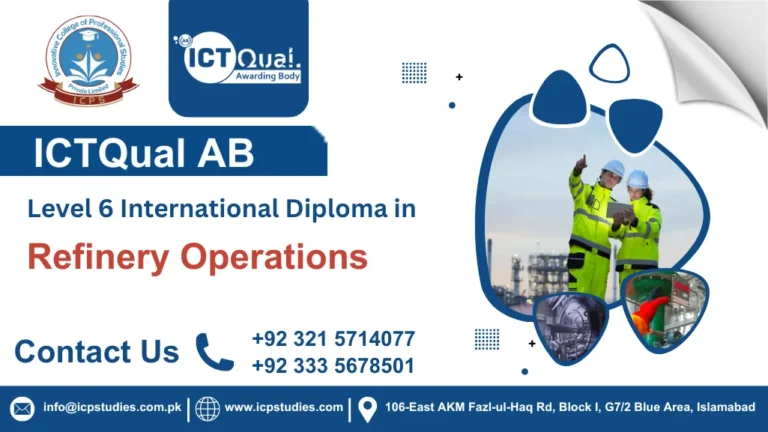In high-risk environments where the potential for hazardous atmospheres exists, the ability to use breathing apparatus effectively can be a matter of life and death. The Level 3 Award in Breathing Apparatus is a critical qualification for those who work in such environments, ensuring that individuals are equipped with the necessary skills and knowledge to operate breathing apparatus safely and efficiently.
The Level 3 Award in Breathing Apparatus is a specialized qualification designed to provide individuals with the skills and knowledge needed to operate breathing apparatus safely and effectively in potentially hazardous environments. This award is particularly relevant for those working in sectors such as firefighting, emergency services, industrial settings, and any role that involves working in environments where respiratory protection is required.
The Level 3 Award in Breathing Apparatus is a crucial qualification for anyone working in environments where respiratory protection is necessary. It equips individuals with the skills and knowledge to operate breathing apparatus safely, ensuring preparedness for emergencies and compliance with health and safety regulations. By investing in this training, individuals and organizations can enhance safety, improve operational efficiency, and build confidence in handling hazardous situations. Whether you’re a firefighter, industrial worker, or involved in emergency response, this award provides essential life-saving skills that can make a significant difference in critical moments.
All About ICTQual Level 3 Award In Breathing Apparatus
Course Overview
The Level 3 Award in Breathing Apparatus is a specialized qualification designed to provide individuals with the necessary skills and knowledge to safely and effectively operate breathing apparatus in environments where respiratory protection is required. This award is particularly relevant for those working in high-risk settings where exposure to hazardous atmospheres is a potential concern, such as in firefighting, industrial settings, and emergency response roles.
The Level 3 Award in Breathing Apparatus is a crucial qualification for those working in environments where respiratory protection is essential. It provides the training needed to operate breathing apparatus confidently and safely, ensuring preparedness for emergency situations and compliance with health and safety regulations. By completing this award, individuals enhance their ability to perform effectively in high-risk scenarios, contributing to overall safety and efficiency in their respective roles.
Study Units
- Introduction to Breathing Apparatus
- BA Equipment Familiarization
- Operational Procedures
- Safety Protocols and Risk Assessment
- Emergency Response and Rescue Techniques
- Maintenance and Inspection
- Practical Exercises and Assessments
To enroll in the ICTQual Level 3 Award in Breathing Apparatus, participants typically need to meet the following requirements:
- Age Requirement: Participants should be at least 18 years old.
- Basic Literacy and Numeracy: A good understanding of English, along with basic literacy and numeracy skills, is essential for completing the course.
- Relevant Experience: Prior experience in firefighting, emergency response, or related fields is beneficial.
- Medical Fitness: Participants may need to provide evidence of medical fitness to wear breathing apparatus, as per industry standards.
- Course Registration: Participants must register for the course through an accredited training provider.
- Payment: Course fees must be paid as required by the training provider.
- Commitment to Attend: Participants should be prepared to attend the full duration of the course and complete any required assessments to receive certification.
Always check with the specific training provider for any additional or varying requirements.
4o mini
The ICTQual Level 3 Award in Breathing Apparatus is designed for:
- Firefighters: Individuals involved in firefighting and emergency response who need to use breathing apparatus safely.
- Emergency Responders: Personnel responding to hazardous situations, such as rescue teams or hazardous materials (HAZMAT) responders.
- Industrial Workers: Employees in industries where exposure to harmful substances or environments requires the use of breathing apparatus.
- Health and Safety Professionals: Individuals responsible for implementing safety measures and ensuring compliance in workplaces that require respiratory protection.
- Training Instructors: Those responsible for training others in the use of breathing apparatus in various contexts.
- Anyone Interested in Safety Equipment: Individuals seeking to understand the proper use and maintenance of breathing apparatus.
Learning Outcome
Introduction to Breathing Apparatus
Learning Outcomes:
- Understand Breathing Apparatus: Demonstrate a comprehensive understanding of the purpose and function of breathing apparatus in hazardous environments.
- Identify Equipment Types: Identify various types of breathing apparatus, including Self-Contained Breathing Apparatus (SCBA) and Airline Breathing Apparatus, and describe their specific uses and features.
- Explain Principles of Operation: Explain the basic principles of how breathing apparatus works to provide respiratory protection in different scenarios.
2. BA Equipment Familiarization
Learning Outcomes:
- Recognize Components: Identify and describe the key components and features of different types of breathing apparatus.
- Understand Equipment Use: Demonstrate an understanding of how each component functions and its role in ensuring effective respiratory protection.
- Setup and Adjustment: Show proficiency in setting up and adjusting breathing apparatus to ensure proper fit and functionality.
3. Operational Procedures
Learning Outcomes:
- Perform Proper Use: Demonstrate the correct procedures for donning (putting on) and doffing (taking off) breathing apparatus, ensuring a proper seal and fit.
- Follow Operational Protocols: Adhere to operational protocols for using breathing apparatus in various conditions, including low visibility and confined spaces.
- Manage Breathing Apparatus: Effectively manage and operate breathing apparatus during simulated emergency scenarios, maintaining proper usage and safety.
4. Safety Protocols and Risk Assessment
Learning Outcomes:
- Identify Hazards: Recognize and assess potential hazards and risks associated with using breathing apparatus in different environments.
- Apply Safety Protocols: Apply relevant safety protocols and procedures to minimize risks and ensure safe operation of breathing apparatus.
- Conduct Risk Assessments: Conduct risk assessments to identify and mitigate potential dangers in the use of breathing apparatus.
5. Emergency Response and Rescue Techniques
Learning Outcomes:
- Execute Emergency Procedures: Demonstrate the ability to perform emergency procedures, including responding to equipment malfunctions and environmental changes.
- Apply Rescue Techniques: Use appropriate rescue techniques to assist others in distress or to evacuate individuals safely while using breathing apparatus.
- Manage Emergency Scenarios: Effectively manage simulated emergency scenarios involving breathing apparatus, ensuring a coordinated and safe response.
6. Maintenance and Inspection
Learning Outcomes:
- Perform Inspections: Conduct thorough inspections of breathing apparatus to ensure it is in proper working condition before use.
- Carry Out Maintenance: Perform routine maintenance tasks, including cleaning, replacing parts, and troubleshooting common issues.
- Ensure Equipment Reliability: Understand and apply procedures to ensure the reliability and safety of breathing apparatus through regular checks and maintenance.
7. Practical Exercises and Assessments
Learning Outcomes:
- Demonstrate Practical Skills: Apply theoretical knowledge in practical exercises, demonstrating competency in using breathing apparatus in controlled scenarios.
- Complete Assessments: Successfully complete practical and theoretical assessments to demonstrate proficiency in all aspects of breathing apparatus use.
- Evaluate Performance: Assess and reflect on personal performance during practical exercises to identify areas for improvement and ensure readiness for real-world applications.
These learning outcomes ensure that participants gain a thorough understanding of breathing apparatus and are equipped with the necessary skills to use it effectively in various situations, enhancing their safety and operational effectiveness.
FAQs about ICTQual Level 3 Award In Breathing Apparatus







